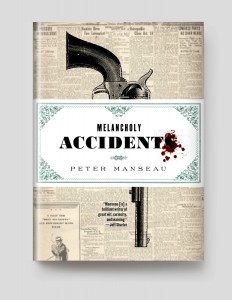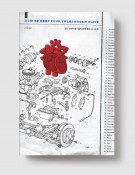
List price: $22.95
Pre-order
- Pages224
- ISBN9781612195063
- Publication dateMarch, 2016
- Categories
- Booksellers
- Media
- Academics & Librarians
Melancholy Accidents
Peter Manseau
Shocked by the epidemic of gun violence in America, acclaimed writer Peter Manseau found himself absorbed by the “melancholy accidents” that appeared in nineteenth-century newspapers: daily accounts of accidental gun deaths that seemed as unfortunate as they were unavoidable. In Melancholy Accidents, Manseau collects, annotates, and introduces many of these articles, painting a devastating portrait of our nation’s long, bloody relationship with firearms. Fully illustrated with period etchings and sketches, Melancholy Accidents is a wholly unique look at the dark side of American history.
Praise for One Nation, Under Gods
”One Nation, Under Gods is a refreshing, compelling, and surprising reexamination of our nation’s history that puts lie to the oft-quoted idea that America was founded as ’a Christian nation.’” —Reza Aslan
”With tales of secret faiths, false tolerance and quiet yet formidable dissent, each chapter is a window onto lives that were lived on the margin of Christian narratives . . . [A] lively, refreshing account.” —The New York Times Book Review
”One of those too-rare works of innovative history that also manage to be works of literary art. Its series of interlocking stories, rich in color and depth, combine to offer a new picture of America, both past and present.” —Adam Goodheart
